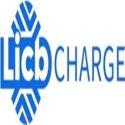Notifications

6 minutes, 22 seconds
-12 Views 0 Comments 0 Likes 0 Reviews

As a leading EV charger manufacturer in China, LiCB Charge delivers reliable AC and DC electric vehicle charging stations along with comprehensive charging solutions.
The electric vehicle (EV) revolution is gaining momentum as more drivers consider switching from gasoline to cleaner, more sustainable electric power. One of the biggest advantages of EV ownership is home charging, which offers unmatched convenience, cost savings, and energy independence.
But how exactly does it work—and is it right for you?
This comprehensive guide covers everything you need to know about charging an electric car at home, including:
Types of home charging (Level 1 vs. Level 2)
Installation requirements and costs
Charging speeds and energy efficiency
Advanced features like vehicle-to-grid (V2G) technology
Pros, cons, and emerging trends
How it works: Uses a standard household 120V outlet with the EV’s included cable.
Charging speed: Adds 3–5 miles of range per hour.
Best for: Plug-in hybrids (PHEVs) or low-mileage daily drivers.
Pros: No installation needed; plug in anywhere.
Cons: Very slow—full charge can take 24+ hours.
How it works: Requires a 240V outlet (like those used for dryers) or a dedicated EV charging station.
Charging speed: Adds 15–30 miles of range per hour; full charge in 4–8 hours.
Best for: Most full-electric vehicle owners.
Pros: Much faster than Level 1; supports smart features.
Cons: Installation required and costs vary.
| Feature | 240V Outlet | Dedicated EV Charger |
|---|---|---|
| Speed | Up to 7.4 kW | Up to 19.2 kW |
| Installation Cost | $300–$1,500 | $500–$2,000+ |
| Smart Features | No | Yes (Wi-Fi, scheduling) |
| Portability | Yes (with adapter) | No (fixed installation) |
Verdict: A dedicated Level 2 charger is typically the best long-term solution for speed, safety, and convenience.
Panel capacity: Older homes may require upgrades.
Circuit needs: 40–60 amp breaker recommended.
Permits: May be required depending on location.
Basic setup (existing 240V line): $250–$800
Complex installation (new wiring, panel upgrade): $1,500–$3,000+
Rebates: Federal tax credit (30% up to $1,000); state/local incentives may apply.
Ensure they’re experienced with EV charger installations.
Get multiple quotes and check for utility rebates or discounts.
Charging speed depends on:
| Charger Type | Power Output | Miles Added per Hour |
|---|---|---|
| Level 1 (120V) | 1.4 kW | 3–5 miles |
| Level 2 (240V, 32A) | 7.7 kW | 25–30 miles |
| Level 2 (240V, 48A) | 11.5 kW | 35–45 miles |
⚠️ Note: The onboard charger in your EV determines the max input it can accept.
Larger batteries (e.g., Tesla Cybertruck: 123 kWh) take longer to charge.
Charging rate slows after 80% to preserve battery health.
Charging a 60 kWh EV at home (at $0.12/kWh) = $7.20 for a full charge
Equivalent gasoline cost for 250 miles at 30 MPG = ~$29.00 (at $3.50/gallon)
Some EVs (e.g., Hyundai Ioniq 5, Ford F-150 Lightning) let you power appliances.
Great for:
Emergency power
Camping or tailgating
Jobsite tools
Allows EVs to send electricity to the grid during peak demand.
Benefits:
Earn credits or money
Supports grid reliability
Current limitations:
Few vehicles and chargers support it
Mostly in pilot programs (e.g., Nissan Leaf)
Convenient: Charge overnight, every night.
Affordable: Lower cost per mile than gas.
Independent: No more fuel stations.
Future-ready: Supports renewable and bidirectional energy.
Upfront cost: Equipment and installation can be expensive.
Home suitability: Older homes may need upgrades.
Renters: Permission required from landlords.
Smart Chargers: Wi-Fi, app control, and utility sync.
Wireless Charging: No cables—just park and power up.
Solar Integration: Pair with rooftop solar for truly clean driving.
Faster Speeds: 19.2 kW residential chargers and beyond are emerging.
For most EV owners, home charging is the most practical, cost-effective, and convenient way to keep their vehicle ready to drive. Despite the initial investment, long-term savings and increased convenience make it worthwhile.
Check your home’s electrical panel capacity.
Compare quotes from licensed installers.
Research rebates and local incentives.
Choose a smart Level 2 charger that fits your EV’s specs.
Ready to make the switch?
Home EV charging puts you in control of your mobility—cleaner, cheaper, and greener.Know more about Google SEO Directory
China EV Chargers EV Charger Manufacturer Smart EV Chargers Electric Car Chargers Electric Vehicle Chargers Electric Car Charging Stations

